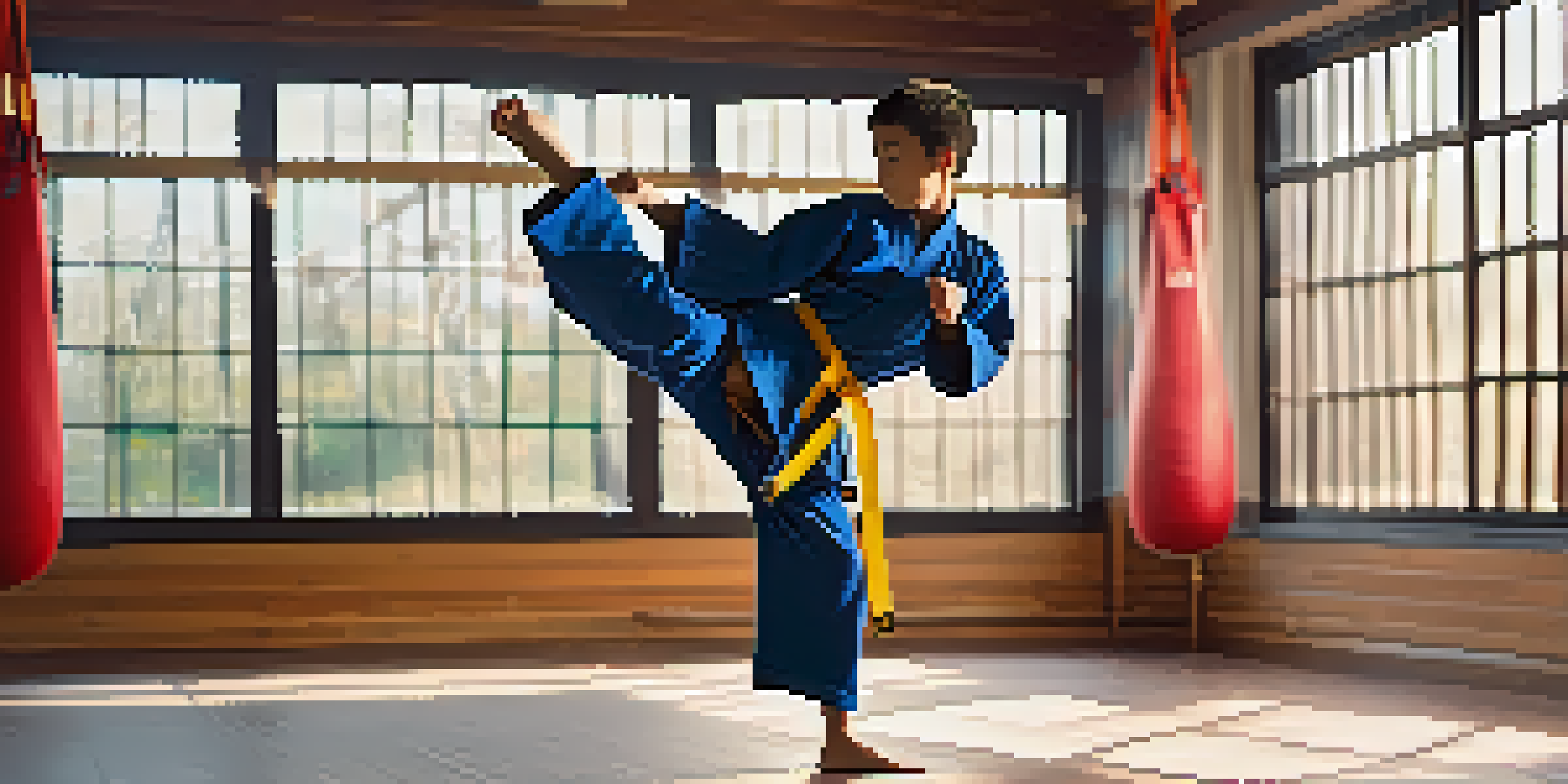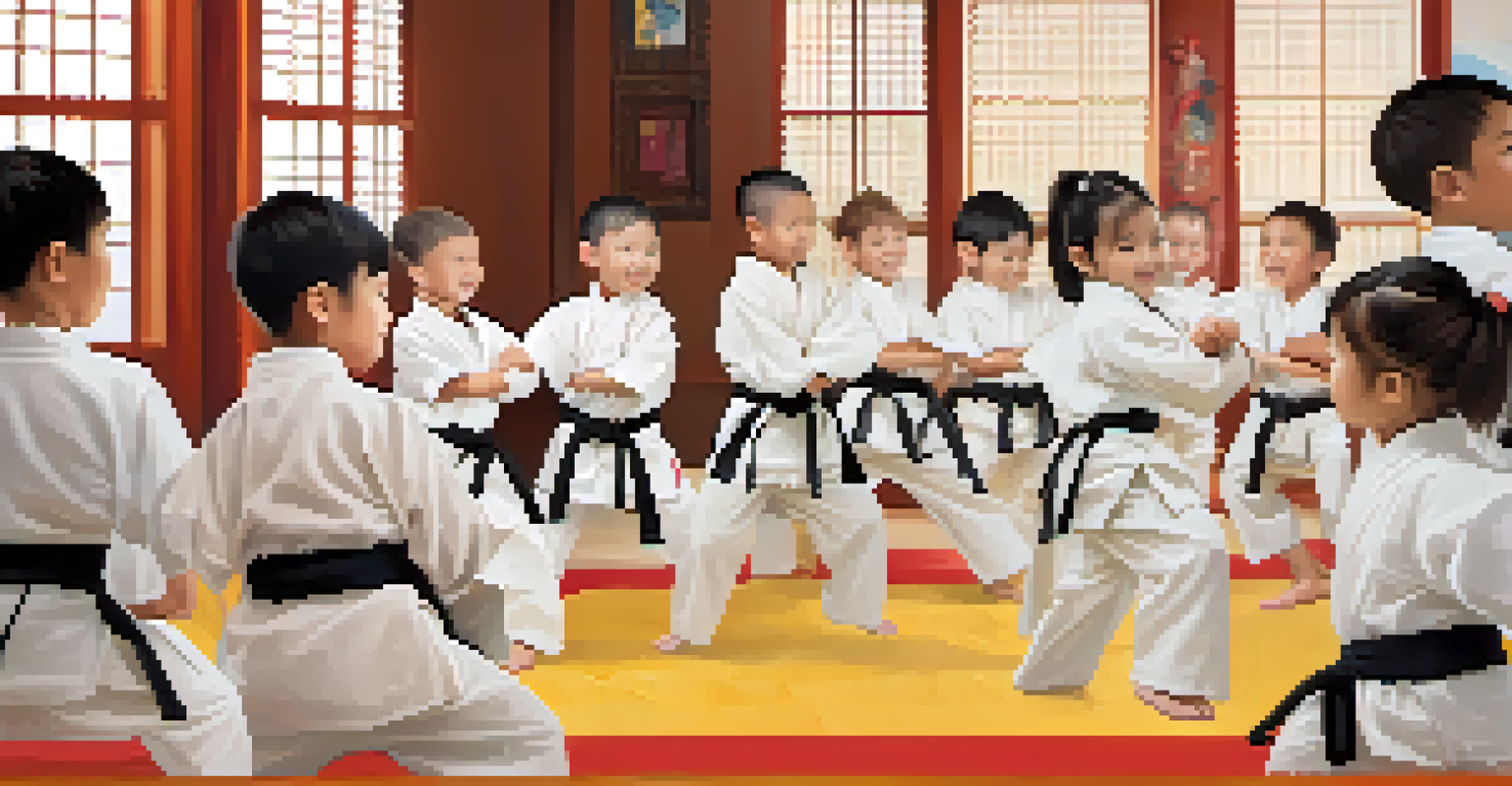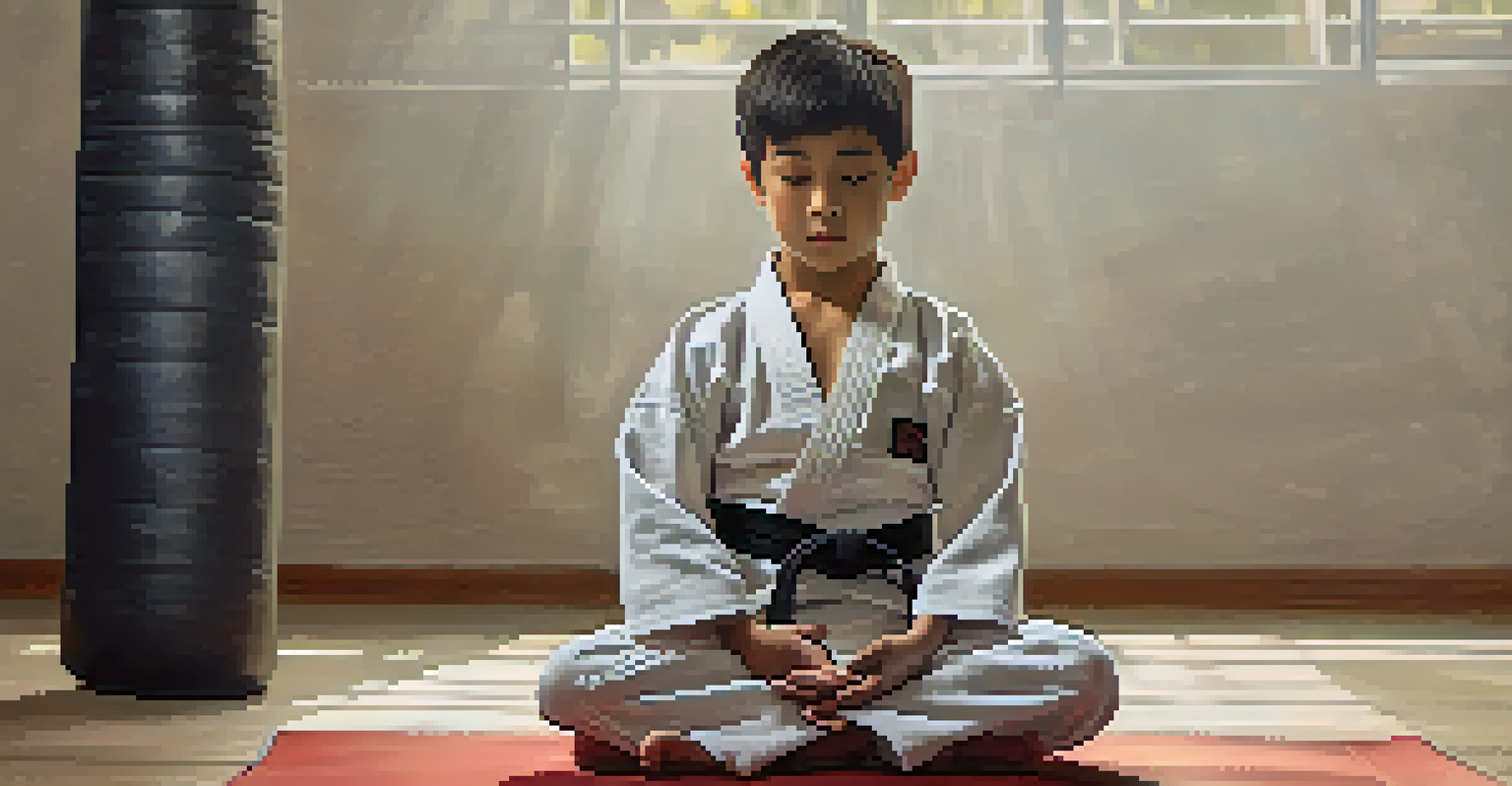Resilience in Martial Arts: A Key to Youth Leadership Growth

Understanding Resilience in Martial Arts
Resilience is the ability to bounce back from challenges, and it's a core principle in martial arts. Practitioners learn to face physical and mental obstacles, developing a mindset that embraces perseverance. This process not only helps them improve their skills but also instills a sense of confidence that translates to various life situations.
It's not whether you get knocked down, it's whether you get up.
In martial arts, resilience is often tested during rigorous training sessions and competitions. Each setback, whether it's a tough sparring match or a failed technique, teaches students to adapt and keep striving for improvement. This iterative learning process mirrors real-life challenges, reinforcing the idea that failure is not the end but a stepping stone to success.
Ultimately, the lessons of resilience learned in martial arts create a solid foundation for youth leadership. Young practitioners gain valuable insights into handling stress, managing emotions, and maintaining focus, all of which are essential qualities in any leadership role.
The Role of Discipline in Developing Resilience
Discipline is another cornerstone of martial arts that significantly contributes to resilience. Through consistent practice and adherence to training routines, students develop a strong work ethic and self-control. This discipline enables them to push through tough times, reinforcing the idea that hard work leads to rewards.

Furthermore, martial arts training requires students to set personal goals, whether it's mastering a new technique or preparing for a belt test. The process of setting, pursuing, and achieving these goals fosters resilience, as students learn to navigate the ups and downs that come with growth. Each small victory builds their confidence, making them more resilient in the face of future challenges.
Resilience Builds Strong Leaders
Martial arts training fosters resilience, helping young practitioners learn to adapt and overcome challenges, which is essential for effective leadership.
By integrating discipline into their training, young martial artists cultivate a mindset that values persistence. This discipline not only aids their martial arts journey but also spills over into their academic and personal lives, making them well-rounded leaders.
Building Confidence Through Martial Arts Training
Confidence is a natural byproduct of resilience, and martial arts training is a perfect way to build it. As students progress through their training, they gain a sense of accomplishment that fosters self-belief. This newfound confidence empowers them to take on leadership roles and challenges outside the dojo.
Success is not final, failure is not fatal: It is the courage to continue that counts.
In martial arts, facing opponents requires a level of self-assurance that can only be developed through practice. Each successful encounter, whether a sparring session or a competition, reinforces the belief that they can handle difficult situations. This cycle of challenge and achievement cultivates a resilient mindset that is essential for effective leadership.
Moreover, the supportive environment of martial arts classes encourages students to step outside their comfort zones. As they learn to trust their abilities and instincts, they become more willing to take risks, which is a crucial aspect of leadership.
Emotional Regulation: A Key Leadership Skill
Martial arts training emphasizes emotional regulation, helping students manage their feelings during high-pressure situations. Learning to control emotions like fear or frustration is vital for resilience, as it allows individuals to maintain clarity and composure. This skill is equally important in leadership roles, where decisions often need to be made swiftly and calmly.
In the dojo, students practice techniques that require mental focus and emotional stability. For instance, during sparring, they must regulate their adrenaline and anxiety, channeling those emotions into strategic movements. This practice not only enhances their martial arts skills but also equips them with tools to handle stress in other aspects of life.
Discipline Enhances Growth Mindset
Through consistent practice and goal-setting, martial arts instills discipline that supports a growth mindset, allowing students to view setbacks as opportunities for improvement.
As they learn to navigate their emotions effectively, young martial artists become better equipped to lead others. Emotional regulation fosters empathy and understanding, enabling them to connect with their peers and mentor them through challenges.
Developing a Growth Mindset Through Challenges
A growth mindset is a belief that abilities can be developed through dedication and hard work, and martial arts fosters this perspective. When students face difficult techniques or challenging opponents, they learn to view these experiences as opportunities for growth rather than insurmountable obstacles. This shift in mindset is crucial for resilience.
In practice, students are often encouraged to reflect on their performances, identifying areas for improvement while celebrating their progress. This reflective approach helps cultivate resilience as they understand that setbacks are part of the learning journey. Embracing challenges as growth opportunities empowers them to tackle leadership roles with confidence.
Ultimately, a growth mindset nurtured in martial arts translates into a lifelong learning philosophy. Young leaders who embrace this mindset are more likely to inspire their peers and foster a collaborative environment, essential for effective leadership.
Social Skills and Teamwork in Martial Arts
Martial arts is not just an individual pursuit; it's also about building community and teamwork. Through partner drills and group classes, students learn to communicate effectively and support each other. These social skills play a crucial role in developing resilience, as they teach young leaders the importance of collaboration in overcoming challenges.
Working together in training fosters a sense of camaraderie, allowing students to share their experiences and learn from one another. This environment encourages them to be more open to feedback and support, strengthening their resilience. When faced with difficulties, knowing they have a supportive network can make all the difference in their journey.
Teamwork Strengthens Community Bonds
Partner drills and group classes in martial arts teach effective communication and collaboration, essential skills for developing resilience and leadership in various contexts.
Moreover, the lessons in teamwork extend beyond the dojo. Young martial artists carry these skills into their schools and communities, where collaboration and mutual support are essential for effective leadership.
Applying Martial Arts Lessons to Real-Life Leadership
The skills and lessons learned in martial arts can be directly applied to real-life leadership situations. Resilience, discipline, emotional regulation, and teamwork are all qualities that effective leaders possess. By cultivating these traits through martial arts, youths are better prepared to face challenges in school, extracurricular activities, and future careers.
For instance, a young leader who has trained in martial arts may approach a group project with a resilient mindset, encouraging teammates to view setbacks as opportunities for growth. Their ability to regulate emotions can help maintain a positive atmosphere, even in stressful situations, fostering a collaborative spirit.

Additionally, the confidence gained from martial arts training equips young leaders to take initiative and inspire others. As they implement the lessons learned on the mat into their daily lives, they become more capable leaders who can motivate and guide their peers.